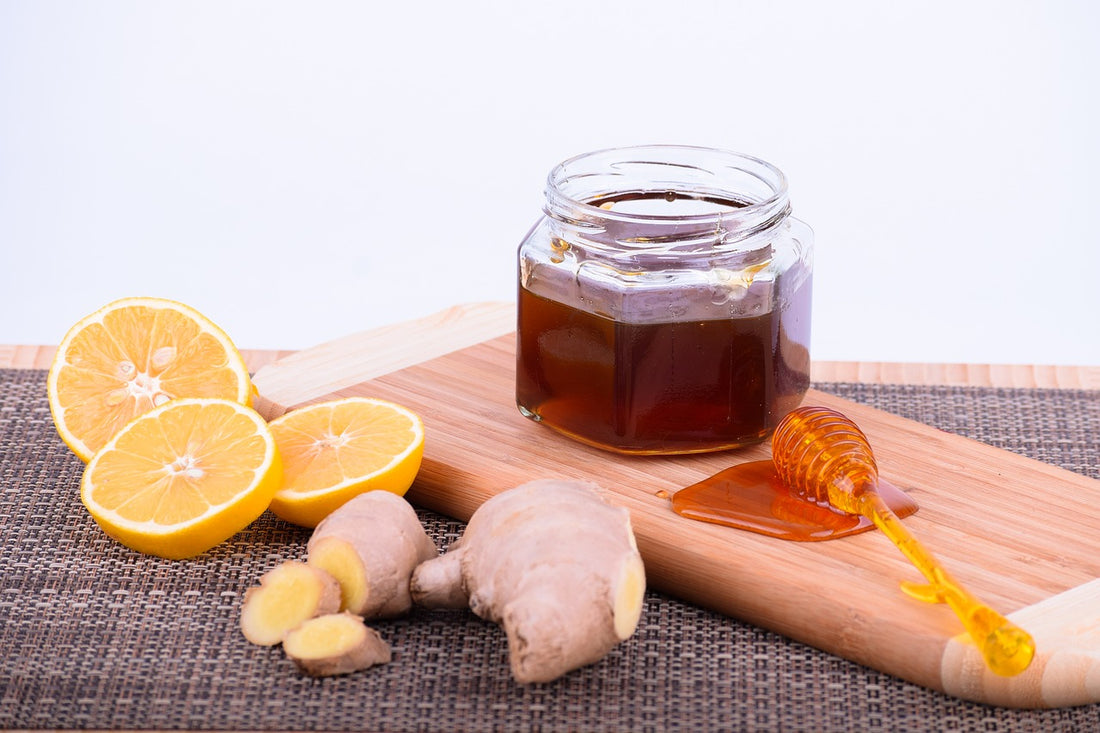Let’s be real, honey could be considered a national treasure at this point. It is versatile and serves as a convenient solution to many problems we encounter daily.
Now you probably already know a lot of things you can do with honey, like sweetening tea and dressing a pancake tower.
But there are many unusual hacks this superfood provides. Don’t worry, we’ll let you in on all the good stuff in this article.
Here are 5 surprising ways you can use honey:
1. To treat minor cuts and burns
Yes, you read that right. Honey can be used as a topical first-aid treatment for minor cuts, burns, and scalds.
Honey, with its natural antibacterial properties, is recommended for minor injuries. When applied to wounded skin, it soothes, prevents infection, and aids in faster healing. However, for major injuries, it's advisable to seek professional assistance.
What are you waiting for? It’s time to add a bottle of honey to your first aid kit!
2. For preserving fruits
Honey has been used traditionally for preserving fruits due to its natural sweetness and antimicrobial properties. While honey is not a replacement for modern preservatives like those found in commercial jams, it can help preserve fruits in certain conditions.
Its remarkable staying power was proven when honey over 3,000 years old was found in King Tut's tomb in 1922. Not only was it still edible, but it showcased the enduring quality of this golden nectar.
Simple Steps for Preserving Fruit with Honey:
1. Prepare Fruit:
- Wash, peel, and cut fruit to the desired size.
2. Add Honey:
- Coat fruit pieces thoroughly with honey.
3. Packaging:
- Place honey-coated fruit in a clean, airtight container.
4. Storage:
- Store in a cool, dark place.
5. Check Regularly:
- Periodically check for spoilage. Discard if mold or off smells are detected.
It's essential to note that while honey can contribute to preservation, it may alter the taste of the fruit and is not a substitute for proper canning procedures. If you're looking for longer-term preservation or if you plan to store the fruit for an extended period, you may want to explore proper canning methods.
3. To boost your athletic performance
Imagine you’re on day 3 of your daily one-hour workout routine and you’re noticing a slight decline. Every new day, it seems like you’re lower on energy than the last. Sounds familiar?
You can remedy that with honey. Thanks to the natural sugars contained in honey, a spoonful before you begin your workout will provide you with a quick energy boost to keep you going.
According to studies, honey, recognized as an easily digestible carbohydrate, proves to be an ideal pre-workout snack. Its gradual energy release plays a crucial role in sustaining prolonged exercise, maintaining stable blood glucose levels, and supporting optimal cognitive function.
So, if you are a gym enthusiast seeking an extra boost, try adding honey to your pre-workout diet.
4. Getting rid of a hangover
Can’t find Aspirin to pop after a night out? Don’t worry, honey is a better (and healthier) alternative.
Honey, rich in fructose, a type of sugar, has been associated with potential benefits in alcohol metabolism, according to some small studies over 20 years old. However, it's essential to note the limited scope of these studies.
Binge drinking can lead to hypoglycemia (low blood sugar) as alcohol blocks the release of stored glucose in the liver. In such cases, a sugar boost from honey might be beneficial after excessive alcohol consumption, particularly if you've had too many drinks during happy hour.
5. As a cough suppressant
While honey doesn’t immediately eliminate coughs, studies have shown that it can help decrease throat inflammation and irritation due to its antimicrobial and anti-inflammation properties.
Here’s how to use honey to alleviate coughs: adults can take 1 teaspoon of pure honey or dilute it in a cup of warm water/tea. For an added effect, you can mix in some lemon drops, cinnamon, or both.
Is honey safe for children?
It is strongly advised to refrain from giving your child honey until they are over 1-year-old. Sometimes honey contains bacteria that can produce toxins in a baby's intestines, leading to infant botulism.
Conclusion
Honey isn't just a sweet addition to tea or the perfect drizzle for a pancake tower; it holds a treasure trove of health benefits. While not all claims are medically substantiated, honey stands as a natural superfood with various potential advantages when consumed in moderation. With a rich history dating back thousands of years, honey has been revered by ancient civilizations for its nutritional properties. Today, it remains a universal food source, enjoyed in diverse cultures worldwide, continuing its legacy as a versatile and cherished substance.
How many of these surprising uses of honey have you tried? Are you excited about giving them a go? Drop a comment; we'd love to hear what you think!
Click here to shop our 100% natural honey jars specially made with love for you.
Reference
Healthline (2019). How, When, and Why Honey Is Used for Wound Care. Retrieved from https://www.healthline.com/health/honey-on-wounds
Mayoclinic (2023). Honey. Retrieved from https://www.mayoclinic.org
NHS (2023). Foods to avoid giving babies and young children. Retrieved from https://www.nhs.uk/conditions/baby/weaning-and-feeding/foods-to-avoid-giving-babies-and-young-children/

